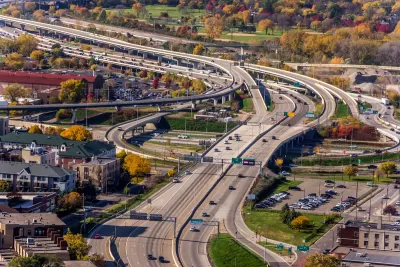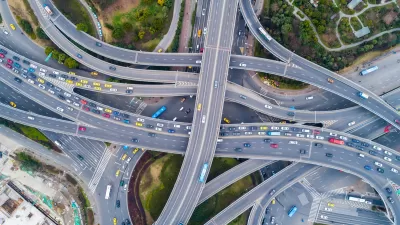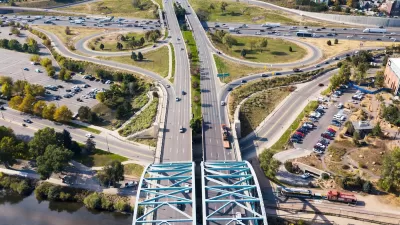The state’s department of transportation will have to consider potential greenhouse gas emissions and alter projects that don’t meet emissions reduction targets.

A 2023 Minnesota state law aimed at reducing greenhouse gas emissions “sets its sights squarely on transportation” by directing the Minnesota Department of Transportation (MnDOT) to consider climate impacts and demand for vehicle miles traveled in proposed highway and road expansion projects.
As Janet Moore explains in The Star Tribune, “If those calculations do not meet MnDOT's targets, the scope of the project must be altered ‘until it conforms,’ or it could be dropped, according a state working group that studied the new law.” A project can also include mitigating measures such as public transit, bike and pedestrian paths, environmental restoration, and roundabouts.
According to Jon Solberg, MnDOT's assistant division director for sustainability, “it's not unlike dealing with wetland mitigation, or crafting ways to comply with existing state and federal environmental laws when planning a new project. It will also encourage agencies, regional planning bodies and local governments to work together more to ensure the targets are met.”
The policy, which goes into effect next February, is part of a broader plan to reach net zero carbon emissions in the state by 2050. According to MnDOT, the agency is focusing on maintaining its existing road system and not planning major expansions.

Maui's Vacation Rental Debate Turns Ugly
Verbal attacks, misinformation campaigns and fistfights plague a high-stakes debate to convert thousands of vacation rentals into long-term housing.

Planetizen Federal Action Tracker
A weekly monitor of how Trump’s orders and actions are impacting planners and planning in America.

In Urban Planning, AI Prompting Could be the New Design Thinking
Creativity has long been key to great urban design. What if we see AI as our new creative partner?

King County Supportive Housing Program Offers Hope for Unhoused Residents
The county is taking a ‘Housing First’ approach that prioritizes getting people into housing, then offering wraparound supportive services.

Researchers Use AI to Get Clearer Picture of US Housing
Analysts are using artificial intelligence to supercharge their research by allowing them to comb through data faster. Though these AI tools can be error prone, they save time and housing researchers are optimistic about the future.

Making Shared Micromobility More Inclusive
Cities and shared mobility system operators can do more to include people with disabilities in planning and operations, per a new report.
Urban Design for Planners 1: Software Tools
This six-course series explores essential urban design concepts using open source software and equips planners with the tools they need to participate fully in the urban design process.
Planning for Universal Design
Learn the tools for implementing Universal Design in planning regulations.
Appalachian Highlands Housing Partners
Gallatin County Department of Planning & Community Development
Heyer Gruel & Associates PA
Mpact (founded as Rail~Volution)
City of Camden Redevelopment Agency
City of Astoria
City of Portland
City of Laramie





























